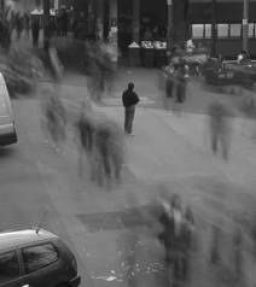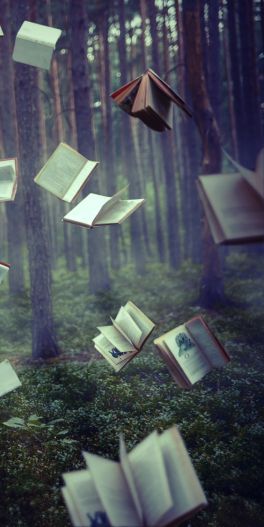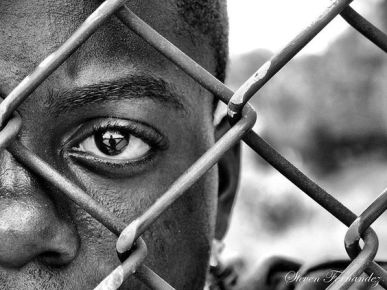As futurist Alvin Toffler once wrote,
“The illiterate of the 21st century will not be those who cannot read and write,
but those who cannot learn, unlearn and relearn.”
When we join a new school, a new church, a new company; we learn to do things the way others do. When we move to new place, we pay attention to its local people and unconsciously pick up their ways of saying, doing and being. We are automatically conditioned by the environment we live in and sometimes this is necessary for survival, sometimes even desirable.
But just as we cannot plant new crops without first uprooting the old ones and giving the new seeds a chance, we must unlearn before we can learn anew.
There are countless books on the subject of learning yet unlearning is hardly given a mention. The topic of learning has been thoroughly researched yet the importance of unlearning is often overlooked.
Imagine you rent a car with a manual transmission.
If you’ve previously only driven automatic cars, learning how and when to change gears would require focus and repetition, but eventually you’d catch on. Now imagine you’re renting the car in London, where you have to drive on the left side of the street.
If you’re used to driving on the right side of the road, and suddenly you need to make a mental switch to the left, both learning and unlearning come into play. You must not only learn to operate a different kind of car but also learn to drive on the opposite side of the street.
Sometimes, in order to receive any measure of success in different fields of your life, you have to unlearn a few things. For example you may have to unlearn your ideas and beliefs surrounding God, love, relationships, friendships, ambition, money and success, failure and regret….
The need to unlearn is important as we evolve, as we discover and grow.
So what exactly is unlearning?
Unlearning is not the opposite of learning.
Learning and unlearning are not opposing concepts.
Learning is gaining new knowledge and unlearning is the process of relinquishing mental constructs and ways of thinking that no longer serve you. Unlearning is not forgetting information you learned before; rather, it is the process of actively choosing a different mental paradigm to better guide decisions and actions.
So how do we unlearn?
The Process of Unlearning
You start with intention.
As every teacher knows, you cannot teach one who has no intention of learning.
It’s a waste of effort. You cannot unlearn without setting the intention to do so.
Next, you eliminate vague intention.
‘To go vaguely in the right direction is to go in the wrong direction.’
If your intention is vague, it cannot be an intention.
If it is vague, it cannot be intent. It’s cliché of me to say this but if you don’t know where you’re headed, how do you expect to get there?
It is easy to fool yourself by going through the motions of planning something when you have no real intention of carrying it out. You might, for example, buy an exercise mat but leave it untouched in the corner of your room. You may do it out of vanity, or you may be tricking yourself. You might even do a few exercises on the mat and still not gain from it. But without setting any real intentions, you will not reach your goal.
Next, you work on uprooting.
‘You cannot plant new crops before you uproot the old crops. In the same way, you need to unlearn before you can learn’
There’s an old story about a professor who was an expert on Buddhism.
He wrote several books and was a real scholar. After several attempts, he had an opportunity to go to Tibet and meet with an enlightened master. The professor was so happy that he presented a set of his books and a list of questions to the master.
The master offered tea to the professor and he accepted. While pouring tea, the master did not stop when the cup was full, but continued to pour until the professor stopped him. The bewildered professor was told that the cup resembled his brain and unless he was willing to empty it, nothing more would fit inside!
At first, this concept may seem contrary to our idea of the unlimited mind.
But you see; our brains may seem limitless when it comes to the acquisition of facts however, when we acquire or process a new idea that conflicts with an old one, this new idea cannot enter our mental box until the old one is discarded.
There is a book called Maiden Voyage in which Tania Aebi, an eighteen-year-old dropout going nowhere, was offered a challenge by her father. He bought a boat and challenged her to go sailing in it for two years on her own and support herself during that time. If she earned enough money during those two years to support herself, she could keep the boat.
Tania was so excited about getting away from her parents and having fun that she didn’t view the many lessons she had to take on navigation and survival techniques as a chore. Once she began her voyage, her survival was dependent on how well she could navigate. Very quickly she picked up what she needed to learn, and she spent the next two and half years sailing around the world, discovering herself. Until the challenge, Tania was locked in a rigid mental box with a pessimistic and non-participatory outlook and an uncertain future. The challenge helped her to unlearn her old thinking and develop an entirely new context for learning.
My point…?
Sometimes, what we already know gets in the way of what we want to learn.
When we unlearn, we are able to generate new ideas and thoughts rather than reformulate the same old stuff. If you wish to blossom, you should remember that
‘The shell must break before the bird can fly.’
— Alfred, Lord Tennyson; `The Ancient Sage’ 1885
Today has been all about integral awareness—taking in information on all levels, mind, body, and spirit. Not resisting, not expecting, not judging, but allowing and removing previous ideas about who you are.
You are learning that true learning is unlearning; a sort of deprogramming, like stripping away the existing paint on a wall so that new paint sticks.
In order for you to experience any sort of success in the different fields of your life, you must learn to unlearn. For example, unlearning the idea that love must be a struggle for it to be true, that jealousy equals depth, that feedback from friends is always authentic, that the opposite of failure is success, that vulnerability equals weakness, that aggression equal strength, that not all body types are beautiful, that aging is a curse, that God is a myth…
Next week we will be looking at the different beliefs and ideas that we might need to unlearn.
I would love to hear from you.
What are you unlearning about love, relationships, parenting, friendships, faith and prayer, ambitions and careers, about life?
What are you unlearning?
As always, hang onto hope.
Naks.
“Half of wisdom is learning what to unlearn.” Larry Niven





